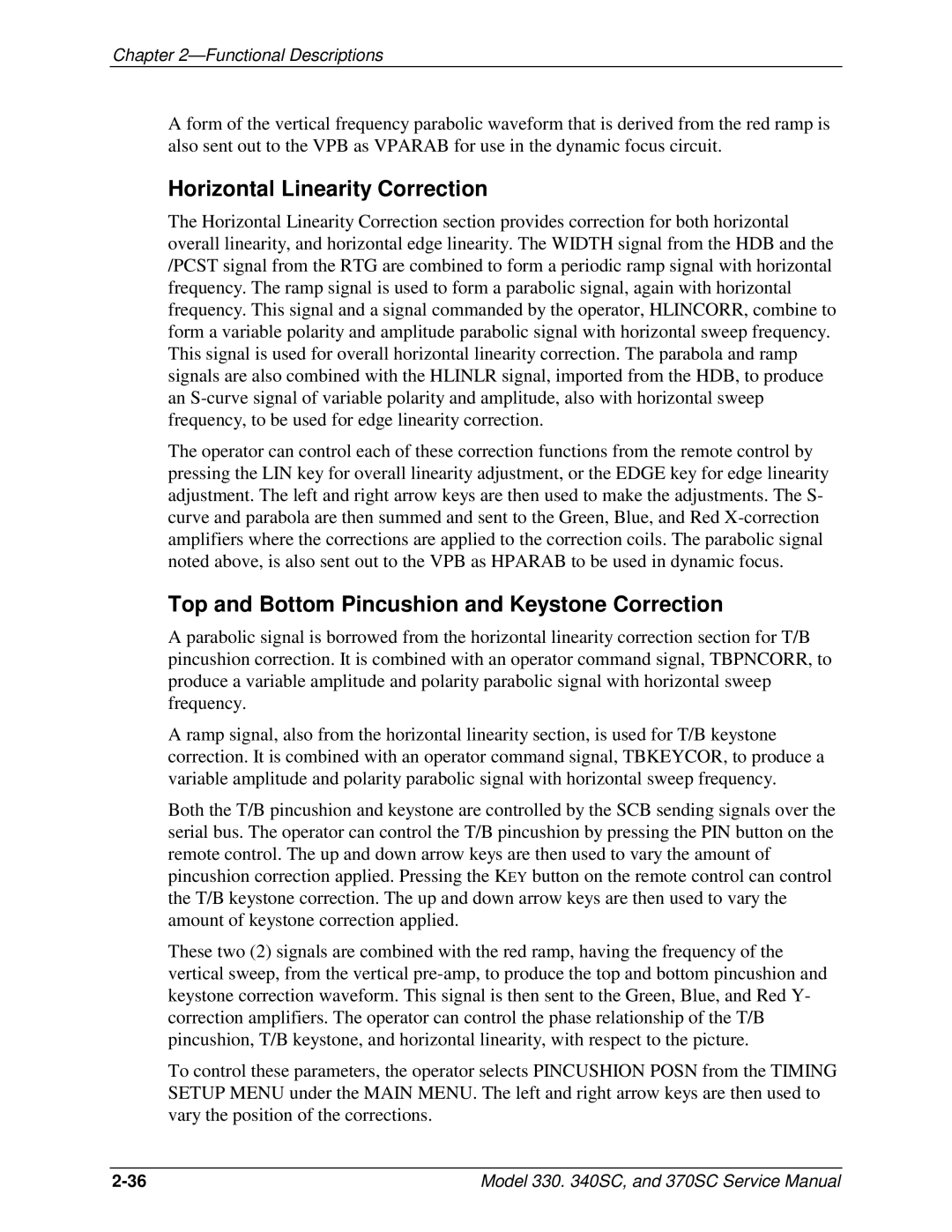
Chapter 2—Functional Descriptions
A form of the vertical frequency parabolic waveform that is derived from the red ramp is also sent out to the VPB as VPARAB for use in the dynamic focus circuit.
Horizontal Linearity Correction
The Horizontal Linearity Correction section provides correction for both horizontal overall linearity, and horizontal edge linearity. The WIDTH signal from the HDB and the /PCST signal from the RTG are combined to form a periodic ramp signal with horizontal frequency. The ramp signal is used to form a parabolic signal, again with horizontal frequency. This signal and a signal commanded by the operator, HLINCORR, combine to form a variable polarity and amplitude parabolic signal with horizontal sweep frequency. This signal is used for overall horizontal linearity correction. The parabola and ramp signals are also combined with the HLINLR signal, imported from the HDB, to produce an
The operator can control each of these correction functions from the remote control by pressing the LIN key for overall linearity adjustment, or the EDGE key for edge linearity adjustment. The left and right arrow keys are then used to make the adjustments. The S- curve and parabola are then summed and sent to the Green, Blue, and Red
Top and Bottom Pincushion and Keystone Correction
A parabolic signal is borrowed from the horizontal linearity correction section for T/B pincushion correction. It is combined with an operator command signal, TBPNCORR, to produce a variable amplitude and polarity parabolic signal with horizontal sweep frequency.
A ramp signal, also from the horizontal linearity section, is used for T/B keystone correction. It is combined with an operator command signal, TBKEYCOR, to produce a variable amplitude and polarity parabolic signal with horizontal sweep frequency.
Both the T/B pincushion and keystone are controlled by the SCB sending signals over the serial bus. The operator can control the T/B pincushion by pressing the PIN button on the remote control. The up and down arrow keys are then used to vary the amount of pincushion correction applied. Pressing the KEY button on the remote control can control the T/B keystone correction. The up and down arrow keys are then used to vary the amount of keystone correction applied.
These two (2) signals are combined with the red ramp, having the frequency of the vertical sweep, from the vertical
To control these parameters, the operator selects PINCUSHION POSN from the TIMING SETUP MENU under the MAIN MENU. The left and right arrow keys are then used to vary the position of the corrections.
Model 330. 340SC, and 370SC Service Manual |
